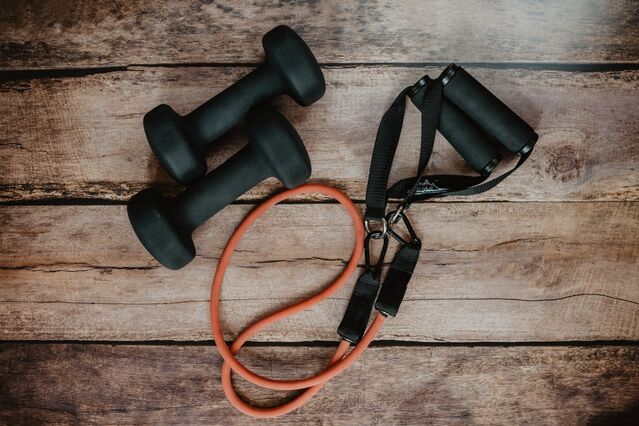Anxiety
The Benefits of Exercise for Anxiety
Three tips to incorporate exercise in your daily life.
Posted January 2, 2022 Reviewed by Kaja Perina
Key points
- Exercise can be a helpful tool to reduce anxiety.
- Exercise improves self-efficacy because it promotes the setting and achievement of goals.
- Make sure to have realistic expectations when starting an exercise routine.

As we embark on a new year, many of us use to this time to reflect on our daily habits and explore ways to improve them. It should come as no surprise that the most popular New Year’s resolution is doing more exercise or improving one’s fitness.
The benefits of exercise for physical health are well publicized. What is discussed less frequently is how exercise can be beneficial for anxiety management. With rates of anxiety on the rise, it is important to remember that exercise can be a helpful tool to reduce anxiety.
From a physiologic standpoint, exercise results in changes to the body that are believed to reduce anxiety. These changes include lower sympathetic nervous system and hypothalamic-pituitary-adrenal reactivity. Exercise can also change your brain chemistry by increasing the availability of anti-anxiety chemicals such as serotonin and brain-derived neurotrophic factor.
From a psychological perspective, exercise reduces anxiety by teaching you to focus on the present moment. Anxiety spikes when we worry about the future or ruminate on past events. When you are engaging in physical activity, nothing else matters but staying focused on your current lift or step on the treadmill. Let your mind wander into a stream of hypothetical scenarios and you may stumble off the treadmill or drop the weight.
In addition, exercise reduces anxiety by building self-efficacy. This occurs because exercise, by design, promotes the setting and achievement of goals. Regardless of your level of physical fitness, there is always a goal to conquer. This may involve walking an extra 5 minutes, swimming an extra lap or lifting an extra 10 pounds. The setting and achievement of goals in the physical arena is empowering. It serves as a blueprint of personal growth and self-discipline that can transfer to other facets of your life.
Finally, exercise enhances your self-worth. Every time you exercise, you make yourself a priority. You are saying NO to the constant demands being placed on you and an emphatic YES to your health and wellness. When you set time aside for yourself, you are conveying the message that you are worth being a healthier version of yourself.
Considering the physical and mental health benefits of exercise, I am surprised that less than 25% of adults get enough exercise. The start of the new year is an opportunity to reverse this trend. Here are three tips to help you incorporate exercise in your life.
1. Some exercise is better than no exercise
You may not exercise because you do not know where to start. With so many exercise regimens to pick from it is easy to become overwhelmed and fall for the trap of paralysis from overanalysis.
Rather than worry about picking the optimal exercise regimen for the sake of achieving maximal results, choose an exercise routine that you are likely to enjoy and stick with. After all, any exercise is better than no exercise. Even a slow stroll on a treadmill or around your neighborhood is better than sitting on a couch glued in front of the big screen.
2. Set realistic expectations
Around 80% of New Year’s resolutions are abandoned within a month. I believe this happens because people set their bar of expectations too high. They may start an exercise program that is too intense in the pursuit of rapid results only to quit shortly thereafter either because the program was too strenuous or they failed to achieve their desired results in the expected time frame.
Set realistic expectations by not expecting to achieve rapid results in a short time frame. It is the consistent practice of healthy habits over a long period of time that produces results. Focus on making physical activity a habitual part of your life by exercising consistently. Be patient as it may take a few months to build a new habit.
Take it slower initially to avoid injury and discouragement. Choose a level of physical activity that you are comfortable with such as walking on a treadmill or using the exercise bike. As you build the habit of exercise and master an introductory level of physical activity, you will be inclined to gradually elevate the bar and try more demanding exercises.
3. Have an accountability partner
It can be hard to stick with a healthy habit such as exercise when you are not seeing rapid results. Having an accountability partner can help you stay the course.
A supportive accountability partner can provide you with genuine praise that can help you stick with a routine even when you are not necessarily seeing the desired results.
It is also harder to slack off knowing that someone is watching. We deeply care about what others think of us. The last thing we want to do is let them down by not staying the course.
Finally, remember to consult with your local healthcare provider before embarking on any exercise regimen. If you are experiencing any difficulty with anxiety symptoms, please contact your local healthcare provider or mental health professional. This article is not medical or therapy advice.




